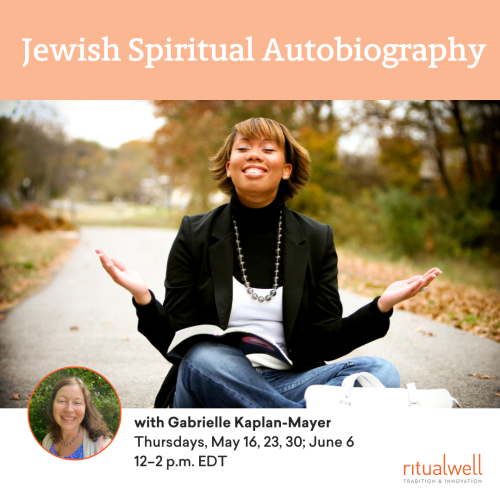Making sense of the world can be challenging when you are a teen, especially with the myriad of confusing and even disturbing messages from peers and the media about what it means to be female and male.
Most teens, with their budding bodies and desires, go to online pornography for information about sex.
What they find instead is a warped idea of sex, with no information about pleasure, mutual respect, or intimacy.
Fortunately, as the executive director of Moving Traditions, there is something I can do about this.
Meaning-making in community is deeply satisfying to me and for several decades I found this in rosh hodeshThe new moon, which marks the beginning of the Jewish month. According to tradition, because women did not participate in the sin of the golden calf, they were given the holiday of Rosh Chodesh. It is customary for women not to work on Rosh Chodesh. groups with friends.
When, in 2000, I heard that women at Kolot, a center of the Reconstructionist Rabbinical College (RRC), were planning to create a rosh hodesh program for girls in middle and high school, I enthusiastically joined the center as co-director.
Now zoom forward 13 years: 12,000 girls have participated in Rosh Hodesh: It’s a Girl Thing! The program grew so successfully in such a short time that it soon spun off to Moving Traditions, an organization I launched with Sally Gottesman.
Thanks to the creativity of many talented people, this Kislev thousands of girls will meet in minyan-sized Rosh Hodesh: It’s a Girl Thing! groups across the country with Moving Traditions-trained adult women mentors, exploring heroism and feminism, consumerism and generosity, beauty and the beauty industry, and the challenges of being a Jewish girl in North America.
On Hannukah we kindle the candles of the hannukiah, or menorahThe seeven-branched menorah stood in the Temple, and many present-day synagogues feature the menorah. Titus' arch depicts the Romans' sacking of the Temple and theft of the menorah. A nine-branched menorah called a Hanukkiyah is lit on Hanukkah to symbolize the miracle of the oil that burned for eight days., to celebrate the rededication of the Temple which was defiled in the time of the Maccabees by those trying to stamp out Jewish expression.
This ceremony of dedication inspires us to rededicate ourselves to the temples of our own bodies – and to resist beliefs imposed on us by others.
While women and girls now have access to public life and authority in ways that would have been unimaginable to our grandmothers, we are at the same time inundated with images of women as sexual objects, sometimes being violently subjugated for the pleasure of others.
This can diminish the light of developing girls. They worry, “Can I be desirable and also be fully myself? Will being a leader make me a target of objectification? If I follow my desires, will I be shamed by my peers on social media?”
One way Moving Traditions and others work to help girls deal with this challenging landscape is to help teen girls (and boys) recognize and resist the pressures to behave in ways that limit their emotional, intellectual, and physical agency.
We also share stories of women who have worked for social change. There is one such complicated heroine associated with Hannukah.
The Book of JudithJudith saved her people by seducing Holofernes, the enemy general, and then decapitating him. The story of Judith, found in the apocrypha, is associated with Chanukah (relating to the tradition of eating cheese dishes because she seduced the general and fed him dairy). Her Hebrew name is Yehudit. tells the story of a pious and clever widow who uses her beauty and desirability to trick and ultimately behead the general who threatens her city with destruction. The story is connected to the Maccabean revolt, but few Jewish children learn of Judith’s bravery and heroism.
The story of Judith leads to interesting discussions for girls in our Rosh Hodesh groups. Are beauty and desirability “acceptable” tools to use when working for justice? What tools of power have girls and women had in the past, and what different options are available to us now? Do boys and men use beauty to getA writ of divorce. Traditionally, only a man can grant his wife a get. Liberal Jews have amended this tradition, making divorce more egalitarian. what they want? Does that answer impact ethical considerations? And finally, why did the rabbis choose not to raise up the story of Judith?
Deborah Meyer is the Founder and Executive Director of Moving Traditions, promoting Jewish education that applies Jewish values and a gender lens to the challenges of teens’ daily lives. For more than 25 years Meyer has built social change organizations, and she writes and speaks about gender, Judaism, and inspiring teens to make meaning in Jewish community.






